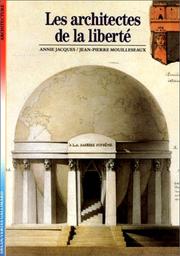| Listing 1 - 4 of 4 |
Sort by
|
Book
ISBN: 1501753436 1501753320 1501753312 Year: 2020 Publisher: Cornell University Press
Abstract | Keywords | Export | Availability | Bookmark
 Loading...
Loading...Choose an application
- Reference Manager
- EndNote
- RefWorks (Direct export to RefWorks)
"This book examines the influence of gender and family values on the development of nineteenth-century French psychiatry"--
Power (Philosophy) --- Psychiatry --- Sex role --- Mental illness --- Gender expression --- History --- Treatment --- Expression, Gender --- Sex (Psychology) --- Madness --- Mental diseases --- Mental disorders --- Disabilities --- Psychology, Pathological --- Mental health --- Medicine and psychology --- Authority --- Ethics --- Philosophy --- Asylum Psychiatry, bourgeois family, history of french psychiatry, nineteenth-century insane asylums, gender post-revolutionary france. --- Gender role --- Sex differences (Psychology) --- Social role --- Sexism --- Gender roles --- Gendered role --- Gendered roles --- Role, Gender --- Role, Gendered --- Role, Sex --- Roles, Gender --- Roles, Gendered --- Roles, Sex --- Sex roles

ISBN: 9782070530670 2070530671 Year: 1988 Volume: 47 Publisher: [Paris] Gallimard
Abstract | Keywords | Export | Availability | Bookmark
 Loading...
Loading...Choose an application
- Reference Manager
- EndNote
- RefWorks (Direct export to RefWorks)
Sous la convention, le Directoire et le gouvernement de Robespierre, commandes et concours sont très nombreux et favorisent l'éclosion d'une nouvelle architecture édilitaire.
Art and the revolution --- Art et révolution --- Revolutionary France --- 72.035(44) --- Architectuur ; Frankrijk ; 2de helft 18de eeuw --- Architecture, French --- Architectuurgeschiedenis ; 18e eeuw ; Frankrijk --- Late 18th Century --- French Revolution --- Art et révolution --- Architecture --- History --- Exhibitions --- Histoire --- Expositions --- France --- Neoclassicisme --- architectuur --- geschiedenis --- Verlichting (18de eeuw) --- Histoire de l'architecture --- Utopie architecturale --- Lequeu, Jean-Jacques, --- Ledoux, Claude Nicolas, 1736-1806 --- Boullée, Etienne Louis, --- Exhibitions. --- Lequeu, Jean-Jacques, 1757-1825 --- Boullée, Etienne Louis, 1728-1799 --- architecture [discipline] --- Enlightenment [18th-century western movement] --- anno 1700-1799 --- architectuur. --- geschiedenis. --- Verlichting (18de eeuw). --- Utopies architecturales Architecture 18e siècle --- 1789-1799 (Révolution) --- Revolution, 1789-1799

ISBN: 0585047871 0520920945 9780520920941 9780585047874 0520088948 Year: 1996 Publisher: Berkeley University of California Press
Abstract | Keywords | Export | Availability | Bookmark
 Loading...
Loading...Choose an application
- Reference Manager
- EndNote
- RefWorks (Direct export to RefWorks)
Enlivened and enriched by Auslander's experiences as a cabinetmaker, this pathbreaking work demonstrates that in post-Revolutionary France, furniture and consumer goods became newly important means of constituting selves, social class, and, perhaps most significantly, the economy and society of the nation itself. The very style of the goods reflected these preoccupations: nineteenth-century bourgeois style was dominated by gendered versions of Old Regime-style furniture, while the working class was offered new furniture designed specifically for its needs. Tastemaking took on a sudden urgency, reflected in the creation of new schools, museums, expositions, libraries, magazines, and books designed to "improve" the taste of producers and consumers alike. As these institutions competed with furniture sellers, a fierce competition sprang up among government bureaucrats, private philanthropists, and distributors to control workers' and consumers' taste. Auslander melds the history of high politics - the formation of the state - with the history of the mundane - furniture - in order to examine how power was consolidated, reproduced, and even resisted in the small objects and gestures of everyday life in France.
Furniture --- Social change --- Politics and culture --- Wood furniture --- Wooden furniture --- Decoration and ornament --- Decorative arts --- House furnishings --- Cabinetwork --- Interior decoration --- Upholstery --- Styles --- Social aspects --- France --- Civilization. --- Politics and government --- Social change. --- Change, Social --- Cultural change --- Cultural transformation --- Societal change --- Socio-cultural change --- Social history --- Social evolution --- 19th century french culture. --- 19th century french society. --- absolutism. --- aesthetics. --- bourgeois style. --- cabinetmaker. --- consumer culture. --- consumer goods. --- european history. --- france. --- french revolution. --- french society. --- furniture sellers. --- furniture. --- gendered furniture. --- modern france. --- monarchical power. --- national economy. --- old regime style furniture. --- post revolutionary france. --- power. --- productive labor. --- representation. --- social class. --- state formation. --- studies on the history of society and culture. --- style. --- taste making.

ISBN: 1282358499 9786612358494 052093976X 1597346128 9780520939769 141752040X 9781417520404 9781597346122 6612358491 9780520238596 0520238591 9780520248168 0520248163 9781282358492 Year: 2006 Volume: 51 Publisher: Berkeley, Calif. University of California Press
Abstract | Keywords | Export | Availability | Bookmark
 Loading...
Loading...Choose an application
- Reference Manager
- EndNote
- RefWorks (Direct export to RefWorks)
In a groundbreaking book that challenges many assumptions about gender and politics in the French Revolution, Suzanne Desan offers an insightful analysis of the ways the Revolution radically redefined the family and its internal dynamics. She shows how revolutionary politics and laws brought about a social revolution within households and created space for thousands of French women and men to reimagine their most intimate relationships. Families negotiated new social practices, including divorce, the reduction of paternal authority, egalitarian inheritance for sons and daughters alike, and the granting of civil rights to illegitimate children. Contrary to arguments that claim the Revolution bound women within a domestic sphere, The Family on Trial maintains that the new civil laws and gender politics offered many women unexpected opportunities to gain power, property, or independence. The family became a political arena, a practical terrain for creating the Republic in day-to-day life. From 1789, citizens across France-sons and daughters, unhappily married spouses and illegitimate children, pamphleteers and moralists, deputies and judges-all disputed how the family should be reformed to remake the new France. They debated how revolutionary ideals and institutions should transform the emotional bonds, gender dynamics, legal customs, and economic arrangements that structured the family. They asked how to bring the principles of liberty, equality, and regeneration into the home. And as French citizens confronted each other in the home, in court, and in print, they gradually negotiated new domestic practices that balanced Old Regime customs with revolutionary innovations in law and culture. In a narrative that combines national-level analysis with a case study of family contestation in Normandy, Desan explores these struggles to bring politics into households and to envision and put into practice a new set of familial relationships.
Domestic relations --- Families --- Family --- Family life --- Family relationships --- Family structure --- Relationships, Family --- Structure, Family --- Social institutions --- Birth order --- Home --- Households --- Kinship --- Marriage --- Matriarchy --- Parenthood --- Patriarchy --- Family law --- Persons (Law) --- Sex and law --- History --- Political aspects --- Social aspects --- Social conditions --- Law and legislation --- France --- Bro-C'hall --- Fa-kuo --- Fa-lan-hsi --- Faguo --- Falanxi --- Falanxi Gongheguo --- Faransā --- Farānsah --- França --- Francia (Republic) --- Francija --- Francja --- Francland --- Francuska --- Franis --- Franḳraykh --- Frankreich --- Frankrig --- Frankrijk --- Frankrike --- Frankryk --- Fransa --- Fransa Respublikası --- Franse --- Franse Republiek --- Frant︠s︡ --- Frant︠s︡ Uls --- Frant︠s︡ii︠a︡ --- Frantsuzskai︠a︡ Rėspublika --- Frantsyi︠a︡ --- Franza --- French Republic --- Frencisc Cynewīse --- Frenska republika --- Furansu --- Furansu Kyōwakoku --- Gallia --- Gallia (Republic) --- Gallikē Dēmokratia --- Hyãsia --- Parancis --- Peurancih --- Phransiya --- Pransiya --- Pransya --- Prantsusmaa --- Pʻŭrangsŭ --- Ranska --- República Francesa --- Republica Franzesa --- Republika Francuska --- Republiḳah ha-Tsarfatit --- Republikang Pranses --- République française --- Tsarfat --- Tsorfat --- Γαλλική Δημοκρατία --- Γαλλία --- Франц --- Франц Улс --- Французская Рэспубліка --- Францыя --- Франция --- Френска република --- פראנקרייך --- צרפת --- רפובליקה הצרפתית --- فرانسه --- فرنسا --- フランス --- フランス共和国 --- 法国 --- 法蘭西 --- 法蘭西共和國 --- 프랑스 --- France (Provisional government, 1944-1946) --- Women. --- History of France --- anno 1700-1799 --- case studies. --- civil rights. --- cultural history. --- domestic sphere. --- europe. --- family and culture. --- family dynamics. --- family politics. --- family relationships. --- french culture. --- french history. --- french revolution. --- french society. --- gender and politics. --- gender politics. --- historians. --- law and culture. --- legal customs. --- new france. --- nonfiction. --- normandy. --- political history. --- revolutionary france. --- revolutionary ideals. --- social practices. --- social revolution. --- sociology. --- traditional family.
| Listing 1 - 4 of 4 |
Sort by
|

 Search
Search Feedback
Feedback About UniCat
About UniCat  Help
Help News
News